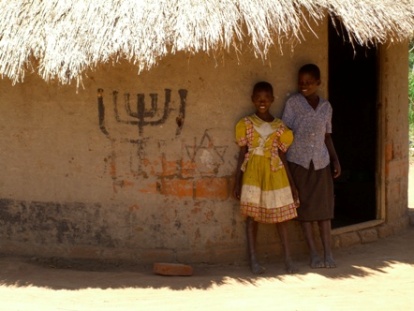Join a community of readers who are committed to Jewish stories
Sign up for JBC’s Nu Reads, a curated selection of Jewish books delivered straight to your door!
In his last blog, Charles London talked about a collected Jewish museum.
The Jerusalem Post has published a report, unsurprising to anyone who has spent time with the Abayudaya community in Uganda, that Israel is sending a Jewish response to the famine wreaking havoc in northern Uganda.
As the article says, Uganda’s Jewish community “has mobilized like few others to fight the famine.” While Israel will still not officially recognize the Abayudaya as Jews, they are demonstrating the best of Jewish values.
For several years, the Jews of Uganda faced threats of violence, oppression, and isolation if they lived openly as Jews. In the last 30 years, they had to fight their neighbors and the government to regain their own tiny patch of land, but they have turned that struggle into prosperity — opening a clinic and a variety of community institutions, and turning their former enemies into allies, in an attempt to lift everyone up from poverty and mistrust.
I saw this life-saving spirit last year when I spent time with the Abayudaya, who are mostly subsistence farmers living in the hills outside of Mbale in eastern Uganda. They had started an interfaith, fair-trade, peace-centered coffee growers cooperative, called Mirembe Kawomera, which means “Delicious Peace” and that promotes sustainable farming and interfaith cooperation.

In recent years, they have been having amazing success. While I was there, I heard tales of other communities witnessing the rebirth of the Jewish community — which, like so much in Uganda had been underground during Idi Amin’s rule — and trying to learn more about Judaism and Jewish history. This interest comes from the simple fact that where the Jews of Uganda live, they try to bring prosperity for their neighbors.
I went into a classroom at Hadassah Primary School, a school run by the Jewish community for students of all faiths. When I tried to get a sense of the diversity of the classroom, the students all made a point of telling me, “we are all Ugandan.”
This simple statement from a group of smiling Muslim, Christian, Jewish, and animist students filled me with admiration. On a continent where too often ethnic diversity has been exploited to tear societies apart for political gain, the Jews of Uganda are using difference to promote tolerance, mutual respect, prosperity, and unity.
Though they are officially converts to Judaism, there is a deep-seated historical basis for the multiplicity of identity that the Ugandan Jews are living out. Our long Diaspora has taught us how to inhabit multiple spaces — national, spiritual, physical, and political — in creative and productive ways. Any doubt that the Abayudaya are authentic Jews should be put to rest by the simple fact that they are living and sharing Jewish values every day in those dusty hills in east Africa. They are an amazing community, and one, which should be welcomed and celebrated in rich ecosystem of global Jewry.
Charles London, the author of One Day the Soldiers Came: Voices of Children in War and the just-released Far from Zion: In Search of a Global Jewish Community
, is guest-blogging for MyJewishLearning and the Jewish Book Council. Visit Far From Zion, his official website.